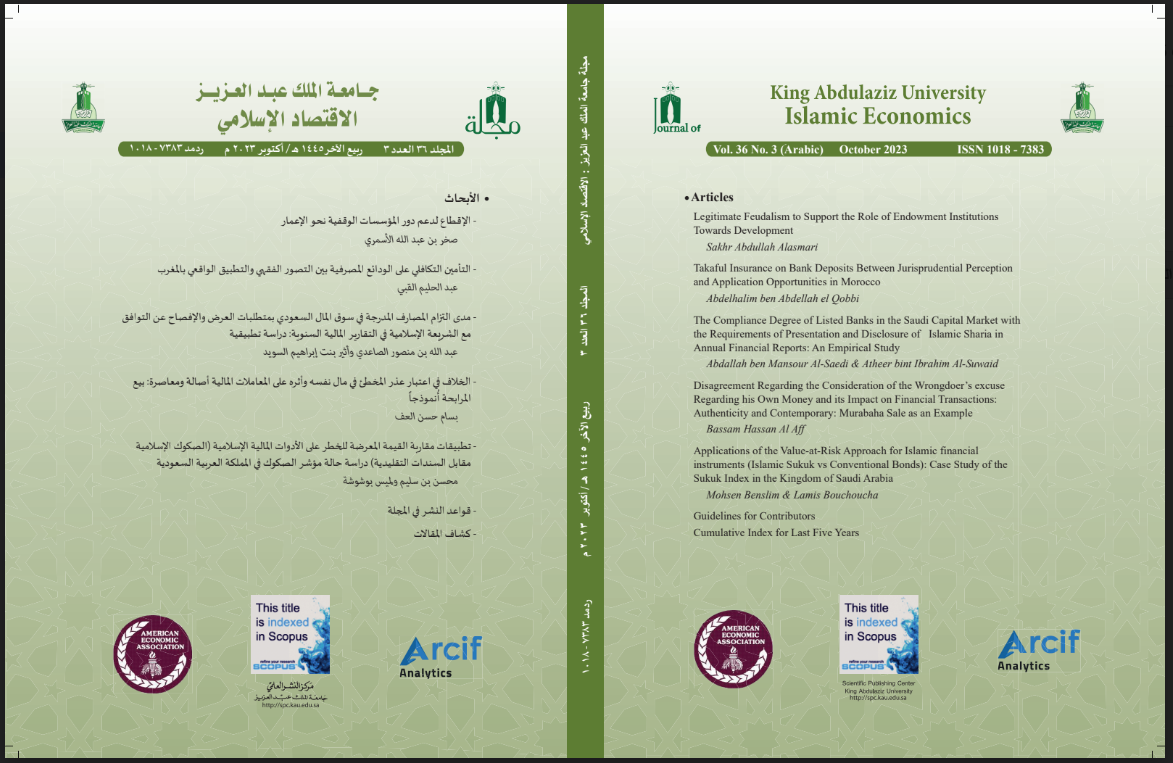Legitimate Feudalism to Support the Role of Endowment Institutions Towards Development
Main Article Content
Abstract
The study discussed the concepts of endowment, feudalism, and sustainable development. It pointed to the evidence of the legitimacy of each of them and stressed that they are important legitimate purposes. It explained the types of feudalism and indicated what leads to ownership or not. Moreover, It includes a list of the legal controls of feudalism and presents it during the reign of the Prophet Muhammad (peace be upon him) and the guided caliphs. The study assumed that feudalism is one of the state’s regulatory tools for the development of endowment institutions with financial solvency, and a means to involve them in development, to establish facilities by investing endowment funds, whether in inhabited cities or in deserted remote areas, opening new investment horizons, and stimulating the construction of new housing and the manufacture of equipment, reclamation, and trading in it, encouraging immigration to it, and stimulating trade around its endowment institutions. This is because waqf institutions provide basic necessary services at no cost to the state. There for, the study discussed the possibility of compatibility of the concept of waqf and the concept of feudalism within its legal limits and their complementarity to achieve reconstruction. At the level of endowment management decisions or endowment investment management. Then the study concluded by presenting the experience of King Abdulaziz Endowment for Al Ain Al Azizia in Jeddah as a contemporary model for the integration between endowment and feudalism, mentioning the results and recommendations.

